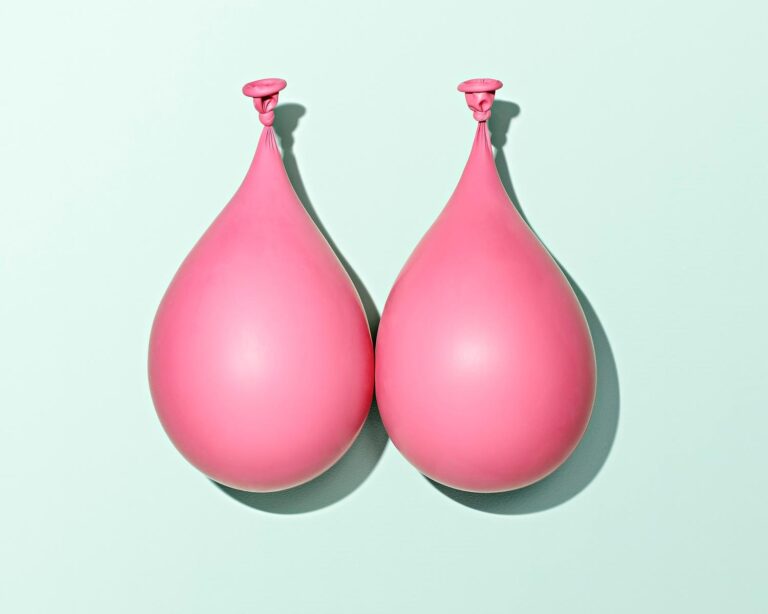Ovulation is that time in the menstrual cycle when an ovum (an egg) is released from the ovaries. This process is usually triggered by hormones. Every woman experiences it differently. Some may notice changes in libido, whereas others a heightened sense of smell or craving may be an indication that they are at this time.
However, to some women, having sore breasts during ovulation is a relatively common experience. The good news is that breast tenderness or pain during ovulation is nothing to worry about. Let’s explain why.
What is ovulation?
Simply put, ovulation is an event that occurs 12-16 days before your next menstrual cycle. The menstrual cycle varies for every woman. This cycle tends to take about 23-35 days. On average, most women begin to ovulate by day 14 before their next period. However, this date varies for each woman.
There are sex hormones that control your menstrual cycle. There is the follicle-stimulating hormone (FSH). This hormone is released by the pituitary gland. The FSH stimulates the growth of ovarian follicles in the ovary. It also stimulates the production of estrogen.
The production of estrogen triggers a reduction in the flow of FSH from the pituitary and triggers the release of LH (Luteinizing hormone). The LH triggers the release of the egg from the ovary. At this time, the estrogen prepares the uterus for pregnancy by stimulating the growth of blood vessels and glands in the uterus lining.
A week after ovulation, the part of the follicle remaining in the ovary produces the hormone progesterone. This hormone also facilitates the development of the uterus lining in preparation for pregnancy. The release of progesterone in the body also stimulates the breasts to begin the development of glands for the production of milk.
In about 14 days after ovulation, if fertilization has not occurred, the production of progesterone stops and menstruation begins. Once menstruation stops, the body starts the whole cycle again with the release of FSH.
What causes breast pain during ovulation?
Now that we have covered this process, it is easier to understand why your boobs hurt during ovulation. Cyclical breast pain is mostly an outcome of the hormonal changes that occur during this stage. The breast tissue is sensitive to hormone changes. As a result, the changes in estrogen and progesterone levels can cause soreness or tenderness.
The level of soreness varies for each woman. There are women who experience a slight tenderness that is barely noticeable. Alternatively, there are those who can describe the experience as breast pain. Researchers continue to study the cause this pain (cyclical mastalgia) during ovulation. There are concerns that the cause of breast pain may be due to low levels of progesterone compared to estrogen during the second half of the cycle. Also, some studies argue that the pain may be due to an abnormality in protein prolactin.
It is advisable to keep a record of the times your experience the pain. This will help determine for sure if the pain or soreness is as a result of ovulation. If you only experience the soreness during ovulation, then you are one of the many women who experience sore breasts as a sign of ovulation.
Other symptoms that can cause breast soreness include PMS, pregnancy, or stress (hormonal changes that occur due to stress).
What to do?
There are some home remedies you can try out to alleviate the soreness. They include:
- Wear a comfortable support bra.
- Apply a cold compress on the breast area. Take some ice cubes from the fridge and wrap them in a towel. Gently compress the wrapped ice cubes over the sore area for about 5 to 10 minutes.
- Reduce your salt intake. This will help reduce water retention during ovulation. Women are at high risk of water retention during this time due to the release of progesterone. The water retention can lead to soreness in some women as the breasts enlarge.
- Avoid caffeine
- Eat a low-fat diet. Maintain a healthy diet during this time. Go for high fiber foods, as well as a diet rich in fruits and vegetables.
- Gently massage the breasts with essential oils or lanolin.
Cyclical breast soreness is nothing to worry about. It is a common symptom of ovulation. However, if you observe that the pain persists long after your cycle (non-cyclical breast pain), then you should probably consult a physician to determine what other factors could be causing the pain.

